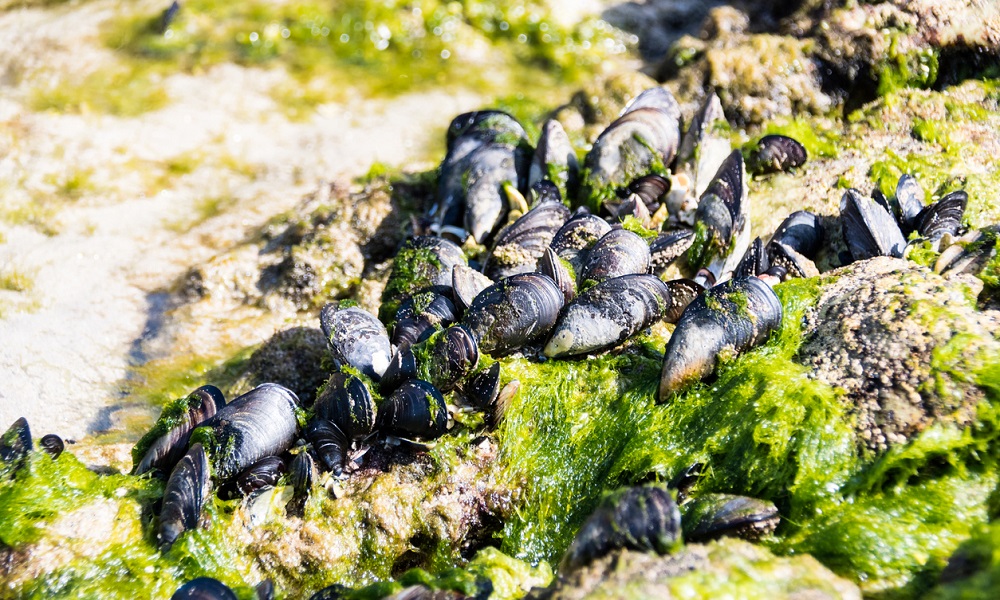The use of Designations of Origin (DO) is of utmost importance to guarantee consumers that the products they are acquiring comply with specific quality standards and that come from a specific geographical origin. The doubt arises when producers intend to make similar or evocative, but not identical, use of the protected DO. How far can they go without infringing the DO?
This is the issue that has confronted the National Association of Canned Food and Seafood Manufacturers – National Technical Centre for the Conservation of Fishery Products (ANFACO-CECOPESCA), on the one part, and the Galician Institute for Consumer Affairs and Competition and the DO Mejillón de Galicia,, on the other hand, and which has been decided by the High Regional Court of Justice (TSJ), Litigation Chamber, of Galicia in its ruling of 2 October 2020. Before going into detail in this specific case, it is worth briefly looking at two relevant precedents in order to understand the line of jurisprudence and regulations being followed in relation to DO.

Relevant background
Firstly, we deal with the ruling issued on 22 January 2016 by the Provincial Court of Pontevedra (JAVIMAR case). The ruling concluded that the use of the signs “de las Rías Gallegas“, “Fabricado en Galicia” or “Envasado en Galicia” for canned mussels constituted an infringement of the DO Mejillón de Galicia by evoking or being improperly associated with that DO, giving consumers the impression that the products were covered by that DO.
Following this line of jurisprudence, a joint instruction was issued by several Galician councils ordering the modification of the labelling of those products which even though contain Galician mussels, they were not covered by the DO Mejillón de Galicia. The Instruction expressly states that, “non poderán elaborar conservas con indicacións na etiquetaxe relativas a Galicia ou que podan evocar ao mexillón de Galicia cando o ingrediente non sexa mexillón amparado pola DOP Mexillón de Galicia”. Transcurrido el plazo otorgado, la autoridad administrativa remitió varios requerimientos a todas aquellas empresas que no cumplieron con lo anterior.
More recently, the European Court of Justice ruling of 2 May 2019 (C-614/17) resolved a question referred in connection with the DO “Queso Manchego”. The European Court of Justice concluded that the DO referred not only to the words by which a registered name may be evoked, but also to any figurative sign which may bring to the mind of the consumer the products covered by the registered name itself. In other words, the evocation will exist even if ‘such figurative signs are used by a product which is established in the same region, but whose products, similar or comparable to the products protected by that designation of origin, are not covered by that designation’. Subsequently, the Supreme Court, in its ruling of 18 July d2019, concluded that the use of figurative signs on the labelling of a cheese related to La-Mancha region such as ‘a drawing of a knight riding a bony horse, with the appearance that usually represents Don Quixote of La Mancha, who is in a field where there are also sheep and windmills” violated the DO Queso Manchego.
ANFACO-CECOPESCA Case
In the case at hand, ANFACO-CECOPESCA raises an administrative appeal against the resolution of the Galician Institute of Consumer Affairs prohibiting the use of the expressions `de las Rías Gallegas’, ‘Fabricado en Galicia’ or ‘Envasado en Galicia’. ANFACO-COPESCA understands that the use of these expressions on mussels of Galician origin is legal and does not infringe the DO Mejillón Gallego. Among other reasons, it argues that the DO only covers fresh mussels produced by the “batea” system and cannot be extended to canned mussels, as well as that the possible references to Galicia in the labelling of Galician mussels are prior to the emergence of the DO, that is to say, that we would be facing ‘a traditional and deep-rooted use, protected by the traceability of the product used’.
The TSJ of Galicia confirms, in the first place, that the specification of the DO Mejillón de Galicia protects both fresh and canned mussels and that therefore, no distinction should be made when determining the scope of protection of the DO.
In addition, the TJS of Galicia analyses whether the use of mentions of ‘Galicia’ or terms that may evoke that territory would contradict the provisions of Article 13 of the European Union Regulation 1151/2012. It shall be remember that this article not only prohibits the unauthorised use of the DO, but also of expressions that imitate or evoke it, even preventing the use of expressions such as ‘style’, ‘type’, ‘method’, ‘produced as in’, ‘imitation’ or similar, even when these products are used as ingredients. Well, the TSJ of Galicia understands that the use of mentions such as, ‘Produced in Galicia’ or ‘Packaged in Galicia’ in the labelling of canned mussels would be a direct use of the protected DO by reproducing the term ‘Galicia’, since this is part of the DO Mejillón de Galicia. With regard to ‘de la Rías Gallegas’, the TSJ points out that this would also be forbidden.
Taking into consideration the precedents analysed, the TSJ rules that the Administration Body was correct in concluding that the use of expressions in the labelling of canned mussels such as ‘de las Rías Gallegas”, “produced in Galicia” or “packaged in Galicia” evokes the product protected by the DO Mejillón de Galicia. It is taken into account that the size and placement of these expressions on the products have an advertising purpose and means a use of the reputation of a product protected by a DO. In other words, it is understood that the mention of the Galician origin of the mussel is not merely descriptive.
Conclusion
The DO, an often overlooked right, is gaining prominence on the national and international scene, moving towards giving increasingly extensive rights to regulatory boards to prohibit any use that not only reproduces the name, but simply evokes it, even when the product is related to the territory in question (see related articles here). This is, without a doubt, a very valuable asset when it comes to giving uniqueness to the products manufactured in certain regions of Spain and to valuing both the quality of its raw materials and the excellence of its production processes. It is worth reflecting on how we can put them into good use.
Beatriz Ganso
Garrigues Intellectual Property Department






